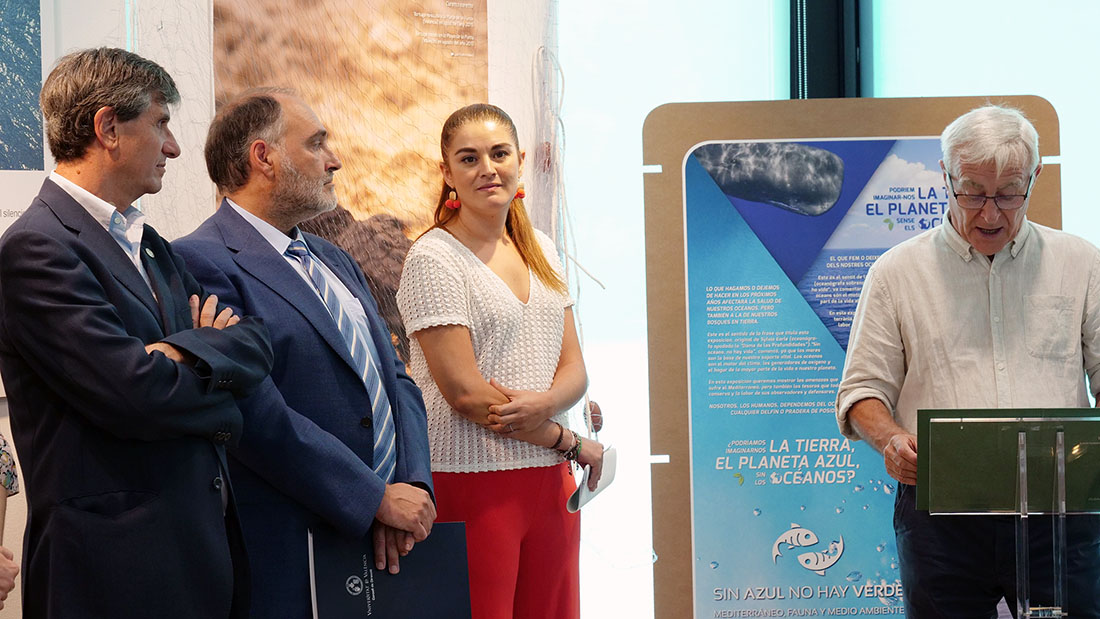The Cavanilles Institute of the University of Valencia (ICBiBe) and the Conselleria of Agriculture and Ecological Transition have opened this Thursday, August 1, the exhibition 'Without blue there is no green', the last action of dissemination of the Interreg Medsealitter European project. The exhibition, located at the Museum of Natural Sciences of Valencia, highlights both the threats that the Mediterranean is suffering and the treasures that it preserves.
The Mediterranean is one of the biodiversity hot spots in the world, but it is also one of the most polluted seas. There, more than 260 species ingest seaweed, that is, plastic waste, monofilament lines, rubber and aluminum foil. The problem particularly affects fish, cetaceans and sea turtles. In their digestive tracts appear continuosly micro and macroplastic rubbish.
The European Marine Strategy Framework Directive considers marine litter as one of the most serious pollutants in the Mediterranean. In this way, the Barcelona Convention, signed by different countries, including Spain, has emphasised the need to control marine pollution in order to drastically reduce the risk to Mediterranean biodiversity.
The Marine Zoology Unit of the Cavanilles Institute of Biodiversity and Evolutionary Biology (ICBiBe) of the University of Valencia, located at the Science Park , in collaboration with the Conselleria of Agriculture and the Environment, has participated in Interreg MEDSEALITTER, an European project for the sampling and quantification of sea litter in the Mediterranean. Its main objective is to develop, test and apply efficient and profitable protocols to analyse and manage the impact of litter on marine biodiversity. It is a pilot project, implemented by 11 partners in four countries - Italy, France, Spain and Greece -.
Interreg Medsealitter was launched in 2016 and now concludes with strong results, after quantifying the intake of marine litter in wild turtles collected during 20 years (1995-2016) in the western Mediterranean. It has established a common standardised protocol that strengthens the effectiveness of the plans aimed at finding solutions to the problem of the impact of litter on the biodiversity of the Mediterranean basin.
Around these questions, the exhibition, Without blue there is no green, has been opened by the counselor of Cultural Heritage and Resources, Gloria Tello, the Vice-Principal of Research at the University of Valencia, Carlos Hermenegildo, the consellera of Agriculture, Rural Development, Climate Emergency and Ecological Transition, Mireia Mollà, and the Mayor of Valencia, Joan Ribó, as well as the curator of the exhibition, the biologist Juan Antonio Raga.


